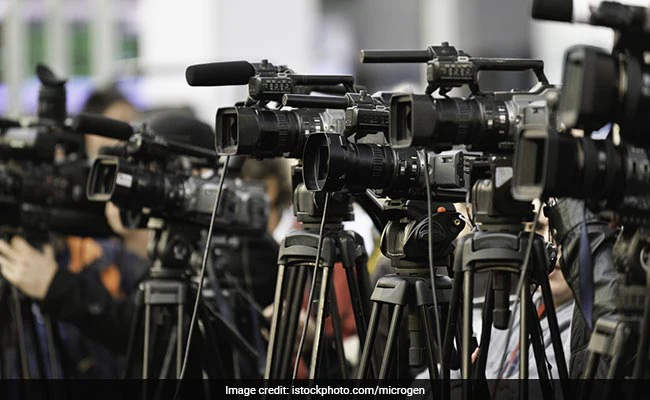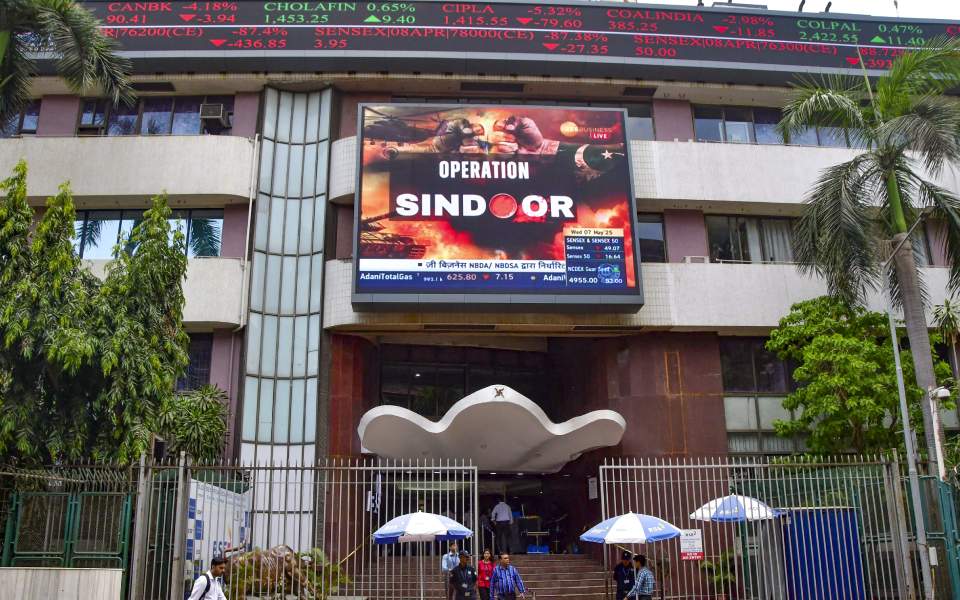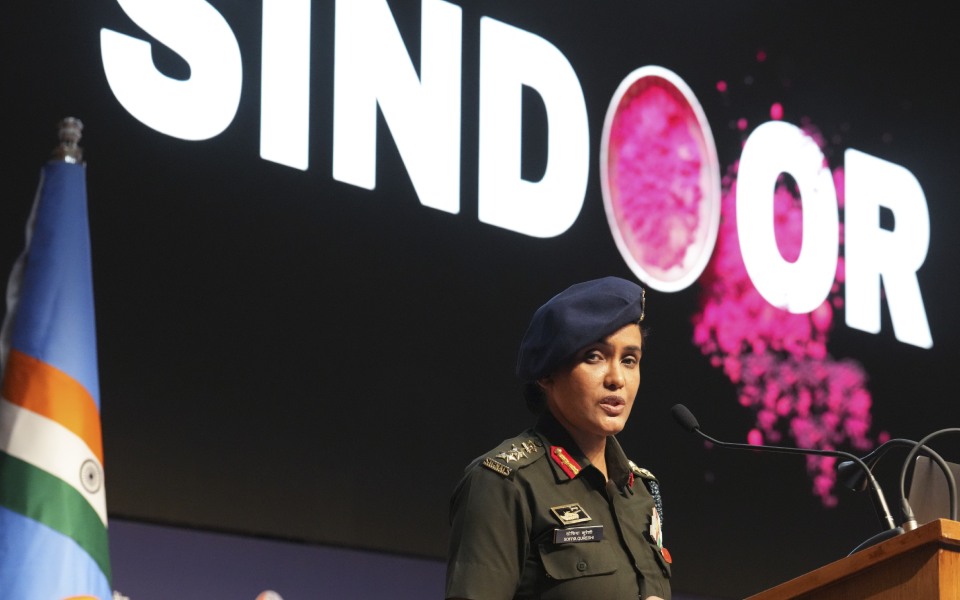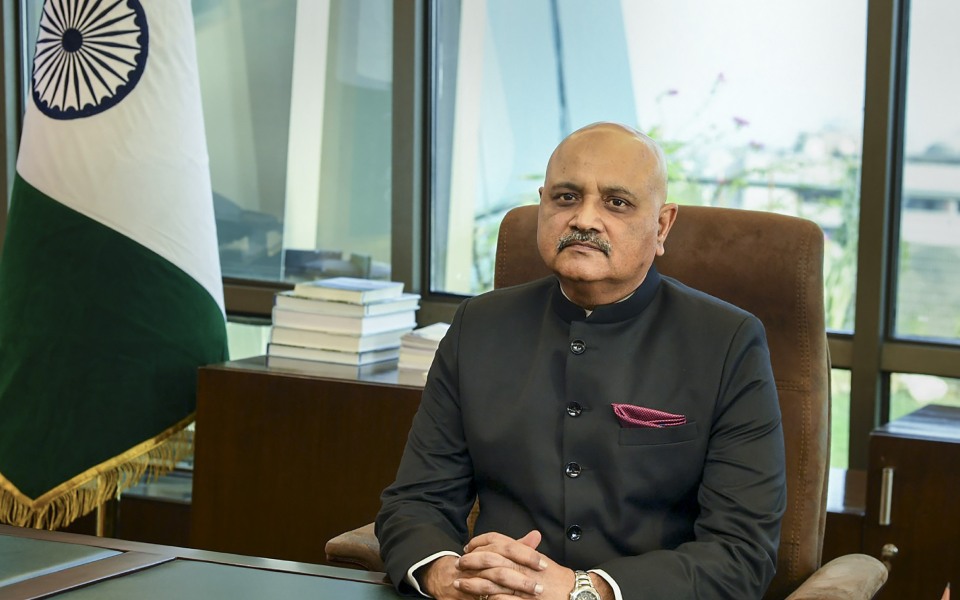New Delhi, Aug 6: The Editors Guild of India on Sunday expressed concerns over certain provisions of the Digital Personal Data Protection (DPDP) Bill, saying they can have an adverse impact on press freedom.
In a statement here, the Guild said the DPDP Bill creates an enabling framework for surveillance of citizens, including journalists and their sources.
The Guild has asked Lok Sabha Speaker Om Birla to refer the Bill to a parliamentary standing committee. It has also written about its concerns on the Bill to Prime Minister Narendra Modi, Rajya Sabha Chairman Jagdeep Dhankhar, IT Minister Ashwini Vaishnaw and leaders of political parties in Parliament.
The government tabled the DPDP Bill in Lok Sabha on August 3 with an aim to protect the privacy of Indian citizens while proposing a penalty of up to Rs 250 crore on entities for misusing or failing to protect digital data of individuals.
The Bill comes six years after the Supreme Court held that right to privacy is a fundamental right.
Under Section 36 of the DPDP Bill, the Guild said, the government can ask any public or private entity (data fiduciary) to furnish personal information of citizens, including journalists and their sources.
It also voiced concerns over clause 17(2)(a) that allows the Union government to issue a notification exempting any "instrumentality of the State" from the provisions of this Bill, thereby out of the ambit of data protection restrictions, including internal sharing and processing of data.
Section 17(4) allows the government and its instrumentalities to retain personal data for an unlimited period of time, it added.
"We note, with dismay, that while the Bill, ostensibly to promote data protection, has failed to make any provisions that bring about the surveillance reform that is urgently needed, and in fact creates an enabling framework for surveillance of citizens, including journalists and their sources," the Guild said.
It said it is deeply concerned about the lack of exemptions for journalists from certain obligations of the law where the reporting on certain entities in public interest may conflict with their right to personal data protection.
The Justice Srikrishna Committee had provided a framework for balance between personal data protection and public interest, which is missing from the current bill, it said.
"This will lead to a chilling effect on journalistic activity in the country," the Guild said.
It said certain provisions of the Bill also shift the balance in favour of non-disclosure of information, including information sought by journalists in public interest, thereby reducing accountability.
The Guild has also flagged concerns over the composition of the Data Protection Board and stressed the need for it to be independent of the government.
The government has listed the DPDP Bill for consideration and passage in Lok Sabha on Monday.
Let the Truth be known. If you read VB and like VB, please be a VB Supporter and Help us deliver the Truth to one and all.
Mumbai, May 7 (PTI): Benchmark stock indices Sensex and Nifty closed higher in a volatile session on Wednesday as India launched missile strikes on terrorist hideouts in Pakistan and Pakistan-Occupied Kashmir.
After gyrating between gains and losses during the day, the 30-share BSE Sensex ended 105.71 points or 0.13 per cent higher at 80,746.78. The index opened sharply down by 692 points and fell further to hit a day's low of 79,937.48 in early trade.
However, buying in private banks and select auto shares such as Tata Motors helped the barometer recover most of the losses and hit a high of 80,844.63 later.
The 50-issue Nifty of NSE advanced by 34.80 points or 0.14 per cent to settle at 24,414.40. Nifty moved between a high of 24,449.60 and a low of 24,220 during the session.
Broader markets also recouped intraday losses and closed higher by more than a per cent. Sectoral indices closed mixed as auto, realty, and metal sectors advanced while pharma and FMCG ended in the red.
"Geopolitical tensions, following India’s military response to a terrorist attack, triggered a gap-down opening. However, a swift recovery helped the indices edge higher by the close," Ajit Mishra – SVP, Research, Religare Broking Ltd said.
In retaliation for the Pahalgam terror attack, Indian armed forces carried out missile strikes early Wednesday on nine terror targets in Pakistan and Pakistan-Occupied Kashmir including the Jaish-e-Mohammad stronghold of Bahawalpur and Lashkar-e-Taiba's base Muridke.
The military strikes were carried out under 'Operation Sindoor' two weeks after the massacre of 26 civilians in Jammu and Kashmir's Pahalgam.
"Even as the country is in the middle of a military action against terrorist network across the border, markets witnessed gyration during intra-day trade but eventually managed to shrug off the uncertainty to end slightly higher. While the mood will be of caution due to Indo-Pak war tension, markets could witness choppy sessions with stock-specific activity over next few days," Prashanth Tapse, Senior VP (Research), Mehta Equities Ltd, said.
From the 30-share Sensex firms, Tata Motors jumped the most by 5.05 per cent as India and the UK sealed a trade deal to reduce duties on most traded goods. The trade deal will make it easier for British firms to export whisky, cars, and other products to India.
Bajaj Finance, Eternal, Adani Ports, Tata Steel, HDFC Bank, Kotak Bank, ICICI Bank, Titan, Mahindra & Mahindra and Power Grid were among the gainers.
Asian Paints, Sun Pharma, ITC, Nestle, Reliance Industries and HCL Tech were among the laggards.
Foreign Institutional Investors (FIIs) bought equities worth Rs 3,794.52 crore on Tuesday, according to exchange data.
"Geopolitical tensions like the ongoing Indo-Pak standoff under 'Operation Sindoor' tend to cause immediate market volatility. While short-term caution is reasonable, history shows that Indian markets demonstrate strong resilience once clarity returns. Unless accompanied by broader economic or global shocks, Indo-Pak tensions have not had a lasting negative impact. Investors should focus on fundamentals, not fear," said Pankaj Singh, small case manager and Founder and Principle Researcher at SmartWealth.ai.
The BSE midcap gauge jumped 1.36 per cent and smallcap index climbed 1.16 per cent.
Among sectoral indices, auto rallied the most 1.74 per cent, followed by consumer discretionary (1.21 per cent), metal (1.19 per cent), realty (1.12 per cent), consumer durables (1.05 per cent), power (0.95 per cent) and financial services (0.94 per cent).
BSE FMCG and healthcare indices were the only laggards.
As many as 2,203 stocks advanced while 1,685 declined 158 remained unchanged on the BSE.
"Indian equity markets exhibited strong resilience amid recent Indo-Pak border tensions, the measured market response indicated that geopolitical risks were largely priced in and expectations of de-escalation is prevailing among investors. At the same time, the progress on the India–UK FTA further buoyed investor optimism, driving gains in key sectors such as textiles, automobiles, and information technology," Vinod Nair, Head of Research, Geojit Investments Limited said.
Globally, investor sentiment has improved as the United States and China signal a willingness to resume trade negotiations, Nair added.
In Asian markets, South Korea's Kospi, Shanghai's SSE Composite index and Hong Kong's Hang Seng settled in the positive territory, while Japan's Nikkei 225 ended lower.
Markets in Europe were quoting in the negative territory. US markets ended lower on Tuesday.
India and the UK on Tuesday sealed a landmark free trade agreement that will lower tariffs on 99 per cent Indian exports and will make it easier for British firms to export whisky, cars, and other products to India besides boosting the overall trade basket.
Global oil benchmark Brent crude climbed 0.64 per cent to USD 62.55 a barrel.
Snapping its two days of gains, the BSE benchmark declined 155.77 points or 0.19 per cent to settle at 80,641.07 on Tuesday. The Nifty dipped 81.55 points or 0.33 per cent to 24,379.60.





